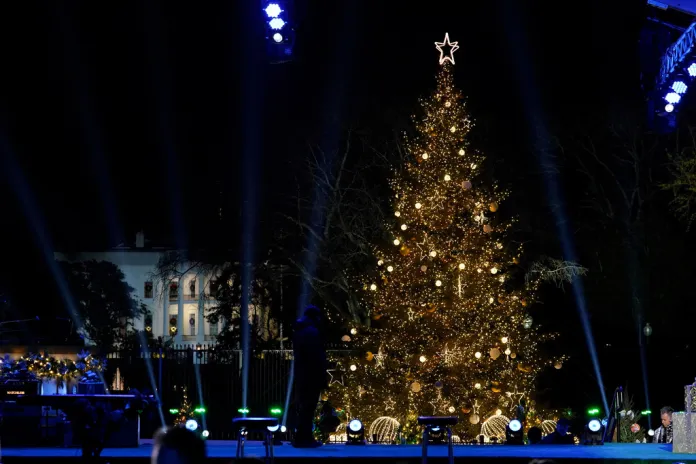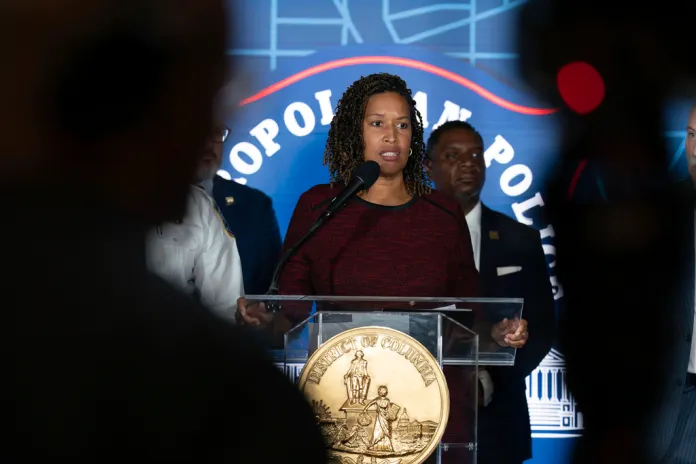Traffic speed camera becomes DC’s top revenue generator – Washington Examiner New speed camera becomes D.C.’s top revenue generator
In Washington, D.C., a speed camera on the Potomac River Freeway has emerged as the city’s leading source of revenue, generating nearly $5.9 million in fines during the first half of 2024. This is part of Mayor Muriel Bowser’s “Vision Zero” initiative established in 2015, intended to reduce traffic fatalities and injuries through increased traffic enforcement measures, including the installation of numerous speed cameras and automated stop-sign violation detectors. The camera on the Potomac River Freeway surpassed a previously leading camera on Interstate-295, which had issued around $3.9 million in fines.
the top ten speed cameras in the district have collectively issued $27.7 million in fines, with many of these fines ranging from $100 to $500. As part of the initiative, a pilot program was launched to tow vehicles with substantial unpaid tickets, leading to the removal of nearly 70 cars with over $600,000 owed. The D.C. Council has also approved legislation allowing the attorney general to pursue civil lawsuits against drivers with unpaid fines and to install speed-restricting devices on offending vehicles.
Despite these measures and the rise in fines, the city recorded a 16-year high in traffic fatalities last year, prompting calls from residents for more speed cameras. Conversely, there is political pushback from Republicans advocating for a ban on automated traffic enforcement, including speed cameras, which could impact future enforcement strategies.
Traffic speed camera becomes DC’s top revenue generator
A speed camera on the Potomac River Freeway in Washington, D.C., has issued nearly $5.9 million in fines during the first half of 2024.
In 2015, Mayor Muriel Bowser launched the “Vision Zero” initiative to tackle the rising number of traffic fatalities and injuries.
Since then, hundreds of speed cameras and automated stop-sign violation detectors have been installed as a key part of this program.
As the city’s main approach to traffic enforcement, these penalties can range from $100 to $500.
The Potomac River Freeway camera, installed in January 2023, surpassed the Interstate-295 camera near Exit 1, which previously led in the amount coming in from fines at nearly $3.9 million, Axios reported.
According to that report, the district’s top 10 speed cameras issued a total of $27.7 million in fines, with two on K Street at Washington Circle accounting for $4.2 million.
As part of the “Vision Zero” initiative, the Department of Public Works launched a pilot program in April that has towed nearly 70 cars with over $600,000 in unpaid tickets and targeted more than 700 vehicles representing nearly $1.6 million in fines.
“Drivers who ignore citations endanger all roadway users by fostering a culture of disregard for our laws,” DPW Director Timothy Spriggs said.
“Identifying and impounding vehicles that have racked up significant fines can be complex, but our scofflaw search teams are getting results and are getting these vehicles off of our streets,” he added.
In February, the Council of the District of Columbia approved a bill granting the district’s attorney general the ability to bring civil lawsuits against drivers with outstanding fines, aiming to address its challenges in effectively collecting these penalties.
The bill also allowed the city to install speed-restricting devices on cars with serious violations.
As of June, the city had installed 477 speed cameras. Residents are now seeking more, according to the Washington Post.
However, Republicans are pushing to ban automated traffic enforcement, including speed cameras.
Despite the rise in fines and the addition of new cameras, traffic fatalities hit a 16-year-high last year.
Crash Fatalities – Washington D.C. by Ailin Vilches
The city has also decreased police traffic enforcement, partly due to a 13% reduction in police staffing from 2018 to 2023.
These automated cameras are expected to yield over $1 billion over the next four years, with revenue declining over time as people get used to them.
“We would love to see lower revenue from tickets, because that would mean more drivers are obeying traffic laws and our streets are getting safer,” “Vision Zero” director Charlie Willson told the Washington Post.
" Conservative News Daily does not always share or support the views and opinions expressed here; they are just those of the writer."




